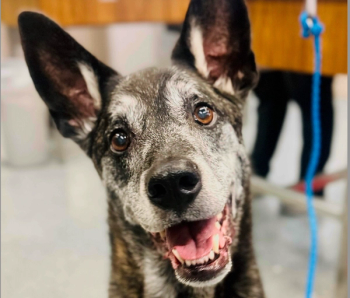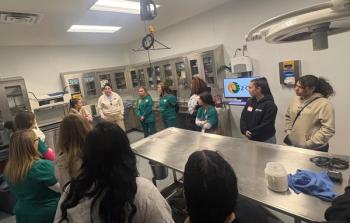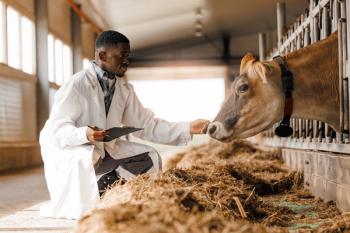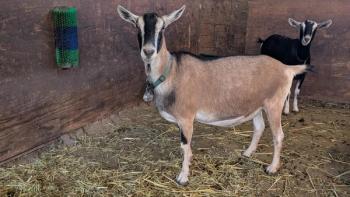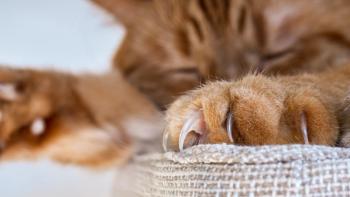
Live-animal surgery comment stirs uproar at Oklahoma State
Stillwater, Okla. - It began with the college newspaper's interview with a philanthropist who said she wanted to redirect her $5 million gift to Oklahoma State University's Center for Veterinary Health Sciences because of the way animals used in teaching and research there were treated.
Stillwater, Okla. — It began with the college newspaper's interview with a philanthropist who said she wanted to redirect her $5 million gift to Oklahoma State University's Center for Veterinary Health Sciences because of the way animals used in teaching and research there were treated.
It turned out to be the fuse that ignited an explosive controversy across the OSU campus, spreading to news media and even to Oklahoma's Legislature, where three lawmakers who are graduates of OSU's veterinary school joined the dean and several students in defending the veterinary program.
All of them issued sharply worded rebuttals to comments by Madeleine Pickens, wife of Texas oil billionaire T. Boone Pickens, who told the Daily O'Collegian she wanted her donation redirected from the school because of lab practices she called "barbaric."
An unnamed student told her surgery was performed on dogs that were anesthetized, awakened, then underwent more procedures, that "maybe (they) take out a kidney, maybe break a leg, fix it, and then they kill them," said Mrs. Pickens, known for championing animal-rights causes. She and her husband are major contributors to the university.
When the article was published Feb. 23, the veterinary school dean, Michael Lorenz, DVM, Dipl. ACVIM, called a meeting of veterinary students the same evening. A university spokesman said the meeting was to address concerns of students who felt the article tarnished the school's reputation.
Many students posted comments on the paper's Web site, and Lorenz posted an online letter the next day to school constituents, to correct what he called "many false allegations" in the newspaper interview.
1 of 5 schools responds to query on live-animal use
At the same time, three state legislators — Reps. Brian Renegar, Lee Denney and Phil Richardson — issued a joint news release defending the school where they each earned DVM degrees. "Yes, surgery is taught there using live animals, but not in the way she (Mrs. Pickens) described. I'm very much a proponent of using live animals for instruction," Renegar tells DVM Newsmagazine.
"It was a part of our education process at OSU, but we treated the surgery animals with dignity and respect." Renegar practices in McAlester, Okla., on days he is away from the capital.
"As a proud graduate of OSU's vet school, I can say the claims about the school's teaching methods are unfounded and colored by the perceptions of individuals promoting a radical animal-rights agenda instead of sound teaching methods for veterinarian training," Renegar, a Democrat, said. All three lawmakers say live-animal surgery is a necessary part of veterinary training.
In his online letter, Lorenz says he wanted to correct "many false allegations" in the newspaper article. He said Mrs. Pickens' gift was undesignated, that animal facilities and protocols are regularly reviewed and meet the same guidelines as other veterinary colleges and that the faculty believes live-animal surgery is essential for training competent veterinarians.
Dogs the school acquires from animal shelters and other approved sources "are marked for euthanasia," Lorenz wrote, adding that they are treated humanely throughout the process, no organs are removed except those involved in spay/neuter procedures and then they are humanely euthanized. The quote about broken bones and removed kidneys "is totally and unequivocally false," Lorenz said.
Two students who attended the meeting with Lorenz defended the school and its teaching program in e-mails to DVM Newsmagazine.
"Our students are, as a whole, independent thinkers who have put a lot of thought into their personal ethical code and have not made their decisions in support of live-animal surgery lightly," says Alicia Davis, a second-year student. "The student who spoke with Mrs. Pickens has an ideological belief that is in the extreme minority at the college. ... I have yet to speak to a single student who does not feel that the OSU live-animal surgery procedures are humane, reasonable and a necessary part of our education."
"The allegations are completely false. I have never broken any bones or removed any kidneys. I treated the dogs with the utmost respect when I was working with them," says Kyle German, a third-year OSU veterinary student. "A strict pain-management protocol was followed, and the animals were treated as any other patient. ... We stand behind our faculty and staff, and believe they do a great job. ... Many other veterinary colleges use live-animal surgery; we certainly are not in the minority."
Veterinary-student comments posted on the O'Collegian's Web page in response to the article included these:
- "The idea that veterinary students would engage in these practices is outrageous. I did not decide to become a veterinarian so that I could abuse and mistreat animals."
- "I am so glad this has come into the eyes of the public. As a former veterinary student at OSU, ... I and many others not only protested but were deeply hurt by what we were required to do during our junior surgery classes. No alternatives (cadavers) were given and you were told you were going to fail if you didn't do what was required." ... Signed, "Truth be known."
- "Did you ('Truth be known') actually graduate from the vet school? If so, how can you perpetuate those lies about junior surgery? We do not break legs, remove organs or do any experimentation on animals. You might not agree with euthanizing the animals, but there is no way you can argue cruel treatment."
Newsletter
From exam room tips to practice management insights, get trusted veterinary news delivered straight to your inbox—subscribe to dvm360.


